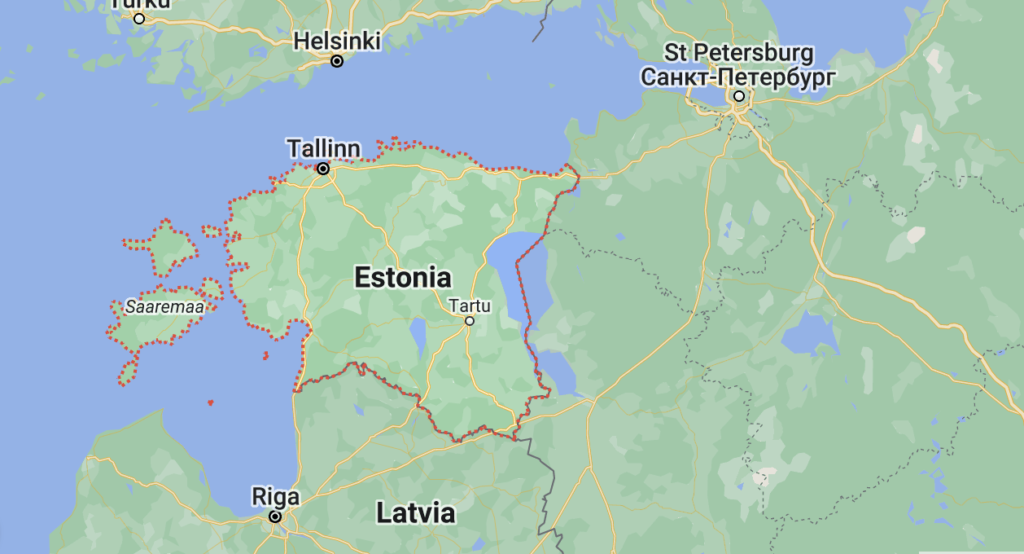Vue lecture
Estonian NGO praised for Ukraine aid now accused of €450,000 fraud

Estonian NGO fraud is now at the center of a criminal case, ERR reports. Estonia’s Prosecutor General has charged Johanna-Maria Lehtme, co-founder of the NGO Slava Ukraini (“Glory to Ukraine”), with large-scale embezzlement and breach of trust, ERR reported. The indictment claims she approved unjustified contracts worth over €450,000, diverting donation funds intended for Ukraine’s war relief.
Johanna-Maria Lehtme gained national and international acclaim for launching Slava Ukraini in 2022. She received Estonia’s European of the Year award and was elected to parliament with the Eesti 200 party in 2023. She stepped down from politics after the allegations emerged. The charity officially ended operations in October 2024 after public donations ceased. Newspaper Eesti Ekspress also reported that Lehtme had faced embezzlement allegations in an earlier professional role.
Prosecutors say logistics payments were fake and unjustified
According to the indictment, Slava Ukraini initially worked with the Ukrainian NGO All For Victory to provide humanitarian aid, ERR reported. In August 2022, Lehtme allegedly shifted operations to IC Construction, a Ukrainian company linked to All For Victory but able to add markups and issue invoices. Prosecutors say she signed loss-making contracts and paid inflated bills submitted by IC Construction, causing over €413,000 in damages.
One contract from that period involved a €44,500 payment to All For Victory for transporting aid from Estonia to Ukraine. Investigators found that IC Construction was paid separately for the same service, although it never performed any logistics work. The funds, prosecutors say, were instead used to cover operational costs and salaries at All For Victory. Lehtme allegedly approved this despite her duty not to harm the charity’s financial standing.
Ukrainian partner also under scrutiny over diverted aid funds
The Ukrainian NGO involved, All For Victory, had already been linked to misuse of humanitarian funds. Lviv Portal reported in February that its director, former Lviv deputy mayor Hennadii Vaskiv, was suspected of embezzling over 18 million UAH or €373,000 from donations received via Slava Ukraini. His firm, IC Construction, allegedly provided overpriced services and routed profits through a limited liability scheme. Ukrainian courts later froze his property, although procedural issues prevented him from being formally charged.
Read also
-
Fifty Ukrainian NGOs rise in defense of Ukrainian top anti-corruption fighter Shabunin, charged with draft dodging and fraud
-
Eight detained in Slovakia over suspected € 7.4 mn military aid fraud to Ukraine
-
Ukraine arrests UN aid volunteer accused of spying for Russia in Donetsk Oblast
-
Founder of Ukrainian refugee aid charity in Czechia charged with multi-million grant fraud
Estonia’s NATO envoy warns: Europe can’t defend itself without Ukraine

Estonia’s permanent representative to NATO, Ambassador Jüri Luik, said on 28 July 2025, on Vikerraadio — Estonian Public Broadcasting’s main radio channel — that Europe cannot realistically mount a credible defense against Russia without Ukraine’s involvement, highlighting Ukraine’s indispensable role in sustaining European security architecture.
“If Europe manages to achieve some kind of peace or truce [in Ukraine — EMP], or if we talk about Europe being able to defend itself against Russia, it is very difficult to imagine such a defense without Ukraine,” Luik said.
European and NATO intelligence agencies have increasingly warned of a growing hybrid and conventional threat from Russia, particularly toward NATO member states. Moscow appears to be preparing a multifaceted campaign — including sabotage of critical infrastructure, disinformation operations, and electronic warfare — aimed at projecting pressure beyond Ukraine’s borders. In the Baltic region, disruptions to undersea cables and power infrastructure — including the Estlink cable between Estonia and Finland — have raised alarms over possible sabotage by the so-called Russian “shadow fleet.”
Luik emphasized in the interview that Ukraine’s large and battle-hardened ground forces are essential not only for defending its own territory but also for enabling a cohesive European defense posture — one that can operate independently of US military dominance and deter potential Russian aggression.
Estonia and Ukraine have deepened bilateral cooperation since Russia’s full-scale invasion in 2022, including joint military training, intelligence sharing, cyber defense collaboration, and political coordination within NATO and EU frameworks. Estonia now allocates more than 4% of its GDP to defense spending and has emerged as one of Ukraine’s strongest advocates in both Brussels and NATO, underscoring a shared strategic view of Moscow’s threat.
Estonia says Russia is moving electronic warfare systems closer to NATO borders

Russia has deployed additional electronic warfare equipment near the Baltic nation’s frontier, escalating regional tensions as GPS jamming incidents increase across the region, Estonia’s Interior Minister Igor Taro said on 24 July.
Western security assessments warn that Russia poses a continuing threat of future aggression against EU countries, with concerns growing over its long-term strategic intentions beyond Ukraine. The Baltic nations – Lithuania, Latvia, and Estonia – are named among the most threatened nation.
Russian forces moved signals jamming systems to the Kingisiepp area, located 20 kilometers from Estonia’s border, Igor Taro announced during a press conference in Tallinn on 24 July, according to Bloomberg.
The Russian Defense Ministry did not respond to requests for comment.
The equipment mirrors technology Russia employs in Ukraine to disrupt drone navigation systems. However, the electronic warfare capabilities create widespread interference with GPS systems used by commercial aviation and maritime vessels.
Estonia’s internal security agency has contacted Russian military officials regarding the deployment, according to Taro. The development follows earlier warnings from Estonian authorities about intensified GPS interference near Narva and the Narva Bay coastline.
The jamming campaign extends beyond Estonia’s borders. Lithuanian Deputy Defense Minister Karolis Aleksa said that Russia’s GPS signal blocking scope “is expanding.” Polish Defense Minister Władysław Kosiniak-Kamysz said on 17 June that his country “records GPS disruptions over the Baltic Sea” linked to Russian activities.
Estonia, positioned on NATO’s eastern flank, maintains strong support for Ukraine while rapidly expanding its defense capabilities to counter potential Russian aggression. Regional tensions have heightened since Russia’s full-scale invasion of Ukraine, with Baltic states reporting increased electronic warfare incidents.
The electronic warfare systems pose risks beyond military applications, as GPS interference affects civilian aircraft navigation and commercial shipping operations throughout the Baltic region.